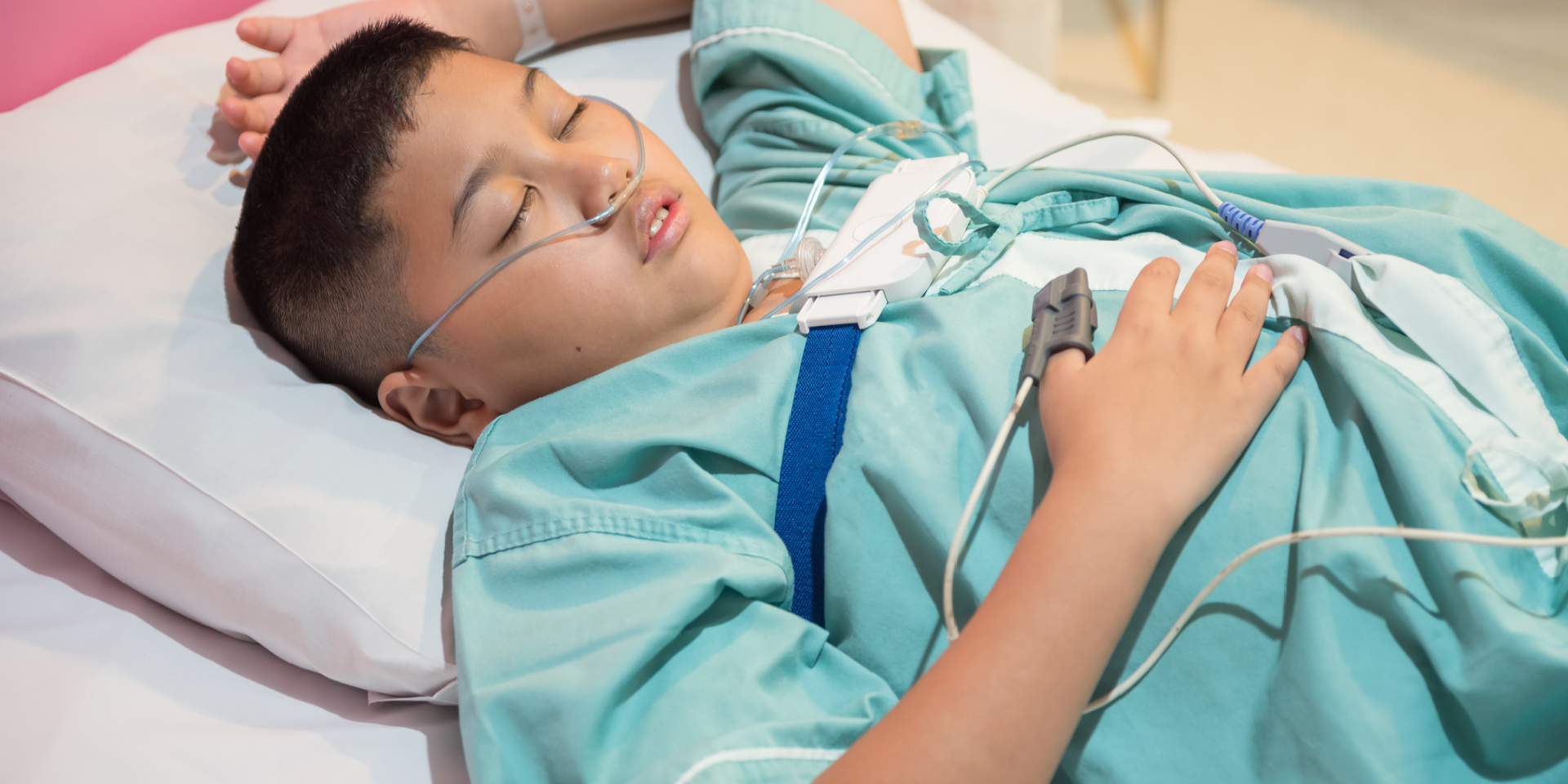“Children can be exhausted when their sleep patterns change. Their symptoms differ from what adults experience,” explains Dr. Kathy Tran Gast, a pulmonologist and pediatric sleep expert.
An undiagnosed sleep disorder in a child or teen can lead to poor school performance, irritability, and even hyperactivity.
What Is Normal?
It’s normal to have constantly changing sleep patterns from birth through the start of elementary school. After that, most children begin to sleep more soundly, according to Dr. Tran Gast.
Signs of a Childhood Sleep Disorder
Parents should suspect a sleep disorder when their child deviates from their regular sleep pattern. Signs include:
- Loud snoring or struggling to breathe
- Trouble falling asleep
- Night awakenings
- Shifts in behavior, mood, or school performance
- Daytime sleepiness or hyperactivity
- Sleep disturbances from early childhood reappear (sleepwalking, sleep talking, night terrors, nightmares, confusion, bedwetting)
“Talk with your child’s primary care provider if you have any concerns about sleep patterns or behaviors,” says Dr. Tran Gast. “You may receive a prescription for a pediatric sleep study or a referral to a pediatric sleep specialist.”
Diagnosing Sleep Disorders
Our Sleep Center serves adults and children aged two years and up. We provide evaluation, diagnosis, treatment, and a management plan for sleep disorders, all in one place. Our certified sleep specialists conduct sleep studies in our private and comfortable sleep laboratory.
What to Expect During a Sleep Study
At-home sleep apnea testing is common for adults. However, the American Academy of Sleep Medicine (AASM) recommends testing children at a sleep lab, which provides a safe and comfortable sleeping environment for an overnight study.
“Sleeping away from home while hooked up to monitoring equipment can be a strange experience. We take steps to make both parent and child comfortable,” says Dr. Tran Gast. “You stay overnight with your child. We encourage you to bring familiar items from home, such as a favorite stuffed animal, comfy pajamas, and a bedtime story.”
In our lab, technicians will carefully place sensors on your child’s face, arms, legs, and stomach. A belt across the chest monitors breathing.
Tests measure:
- Brain waves for seizures, brain activity
- Heart rate
- Oxygen levels and breathing
- Arm and leg movements
“Before, during, and after the test, our Sleep Center team collaborates with your primary care provider,” says Dr. Tran Gast. We maintain relationships with pediatric experts in psychology, pulmonary medicine, neurology, and ear, nose and throat surgery. “If your child needs to follow up with a specialist, we schedule the appointment for you.”
Common Childhood Sleep Disorders
Obstructive Sleep Apnea
Snoring or irregular breathing can be a sign of sleep apnea.
Treatment of apnea depends on the cause. “The most common cause of childhood apneas is enlarged tonsils or adenoids that block the airway. This can be treated with surgery," says Dr. Tran Gast.
Children who are overweight and children with Down syndrome are more likely to have sleep apnea. When apnea is due to obesity, counseling, weight loss, and a continuous positive airway pressure (CPAP) machine may be recommended. For CPAP, your child will wear a mask at night as the device helps them breathe.
“Confusion arousal or partial awakening is when your child wakes up disoriented, which might be considered normal for a very young child,” explains Dr. Tran Gast. "However, if it persists or there are signs of sleep deprivation, we want to rule out other possible problems."
Parasomnia
Parasomnia is a generic term for any behavior problem related to sleep, such as:
- Sleepwalking
- Acting out dreams
- Night terrors
"These behaviors can be normal in children. Parasomnias can also run in families," says Dr. Tran Gast. “If the behavior continues as your child ages, we may recommend a sleep study to identify or rule out other disorders."
Narcolepsy
“Excessive daytime sleepiness is a red flag for narcolepsy,” says Dr. Tran Gast. "Children with narcolepsy may fall asleep during the day. Your child can be highly functional and sometimes not realize they have fallen asleep, even writing after drifting off. This is automated behavior."
Other symptoms include the following:
- Cataplexy — arms and legs give out when experiencing a strong emotion
- Hypnopompic hallucinations — seeing things while falling asleep or waking up
- Sleep paralysis — difficulty moving as you wake up or fall asleep
In addition to an overnight sleep study, your child may have multiple sleep latency testing (MSLT). A series of naps taken throughout the day, MSLT looks for an abnormal sleep pattern.
Learn more about Doylestown Health’s Sleep Center. The American Academy of Sleep Medicine offers resources for parents, including a bedtime calculator.
About Doylestown Health
Doylestown Health is a comprehensive healthcare system of inpatient, outpatient, and wellness education services connected to meet the health needs of the local and regional community. The flagship of Doylestown Health is Doylestown Hospital, a not-for-profit, community teaching hospital with 245 beds and a medical staff of more than 600 providers who deliver the highest quality care in over 50 specialties. Renowned locally, regionally, and nationally, Doylestown Hospital provides superior healthcare and offers advanced surgical procedures, innovative medical treatments, and comprehensive specialty services. Serving Bucks County for over 100 years, Doylestown Hospital is proud to educate and train the next generation of physicians through its family medicine residency program. Ranked as one of the World’s Best Hospitals by Newsweek and 9th in Pennsylvania, Doylestown Hospital is distinguished in both infection prevention and patient experience. Doylestown Hospital is the only hospital in Pennsylvania to achieve 18 consecutive ‘A’ grades for patient safety from Leapfrog Hospital Safety Grade. Learn more at doylestownhealth.org.
